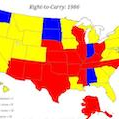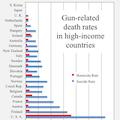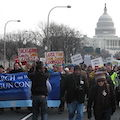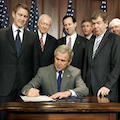Search results
Aug 3, 2023 · Gun control laws infringe upon the right to self-defense and deny people a sense of safety. The police cannot protect everyone all of the time. 61% of men and 56% of women surveyed by Pew Research said that stricter gun laws would “make it more difficult for people to protect their homes and families.”.
- International Civilian Gun Ownership Rates
Sources. Small Arms Survey, “Estimating Global Civilian-Held...
- U.S. Gun Deaths by Year
The Centers for Disease Control (CDC) tallies American gun...
- Pro & Con Quotes
[W]e know that about 80 percent of gun owners support...
- Average American Gun Owner
Gun Control – Menu. Gun Control – Pros & Cons; Pro & Con...
- History of Gun Control
Gun control laws are just as old or older than the Second...
- Take Action
1. Explore the pro positions of Everytown for Gun Safety. 2....
- International Civilian Gun Ownership Rates
Mar 8, 2019 · The pros and cons of gun control offer no easy answers for the American culture to consider. Rulings that involve the Second Amendment provide for individual ownership. That means both sides of this debate must work together to find elements of common ground that can help each group find ways to reduce the deaths attributed to firearms.
- Overview
- PRO
- CON
To access extended pro and con arguments, sources, and discussion questions about whether more gun control laws should be enacted, go to ProCon.org.
The United States has 120.5 guns per 100 people, or about 393,347,000 guns, which is the highest total and per capita number in the world. 22% of Americans own one or more guns (35% of men and 12% of women). America’s pervasive gun culture stems in part from its colonial history, revolutionary roots, frontier expansion, and the Second Amendment, which states: “A well regulated militia, being necessary to the security of a free State, the right of the people to keep and bear Arms, shall not be infringed.”
Gun control laws are just as old or older than the Second Amendment (ratified in 1791). Some examples of gun control throughout colonial America included criminalizing the transfer of guns to Catholics, slaves, indentured servants, and Native Americans; regulating the storage of gun powder in homes; banning loaded guns in Boston houses; and mandating participation in formal gathering of troops and door-to-door surveys about guns owned.
The Second Amendment of the US Constitution was ratified on Dec. 15, 1791. The notes from the Constitutional Convention do not mention an individual right to a gun for self-defense. Some historians suggest that the idea of an individual versus a collective right would not have occurred to the Founding Fathers because the two were intertwined and inseparable: there was an individual right in order to fulfill the collective right of serving in the militia.
Until 2008, the Supreme Court repeatedly upheld a collective right (that the right to own guns is for the purpose of maintaining a militia) view of the Second Amendment, concluding that the states may form militias and regulate guns.
The first time the Court upheld an individual rights interpretation (that individuals have a Constitutional right to own a gun regardless of militia service) of the Second Amendment was the June 26, 2008 US Supreme Court ruling in DC v. Heller. The Court stated that the right could be limited: “There seems to us no doubt, on the basis of both text and history, that the Second Amendment conferred an individual right to keep and bear arms. Of course the right was not unlimited… Thus we do not read the Second Amendment to protect the right of citizens to carry arms for any sort of confrontation, just as we do not read the First Amendment to protect the right of citizens to speak for any purpose.”
•The Second Amendment is not an unlimited right to own guns.
•More gun control laws would reduce gun deaths.
•High-capacity magazines should be banned because they too often turn murder into mass murder.
•More gun control laws are needed to protect women from domestic abusers and stalkers.
•Guns are rarely used in self-defense.
•Legally owned guns are frequently stolen and used by criminals.
•The Second Amendment of the US Constitution protects individual gun ownership.
•Gun control laws do not deter crime; gun ownership deters crime.
•Gun control laws infringe upon the right to self-defense and deny people a sense of safety.
•Gun control laws, especially those that try to ban “assault weapons,” infringe upon the right to own guns for hunting and sport.
•Gun control laws will not prevent criminals from obtaining guns or breaking laws.
•Gun control laws give too much power to the government and may result in government tyranny and the government taking away all guns from citizens.
Jan 26, 2023 · By The New York Times. Published Jan. 26, 2023 Updated Jan. 26, 2023. As the number of mass shootings in America continues to rise, gun control — a term used to describe a wide range of ...
May 27, 2022 · Eric Thayer/Getty Images. The nationwide gun control debate resurfaced on Tuesday, after an 18-year-old shooter entered Robb Elementary School in Uvalde, Texas, and killed 19 students and two ...
Apr 15, 2024 · gun control, politics, legislation, and enforcement of measures intended to restrict access to, the possession of, or the use of arms, particularly firearms.Gun control is one of the most controversial and emotional issues in many countries, with the debate often centring on whether regulations on an individual’s right to arms are an undue restriction on liberty and whether there is a ...
Jan 10, 2023 · Methodology. As part of the RAND Gun Policy in America initiative, we conducted rigorous and transparent reviews of what current scientific knowledge could tell the public and policymakers about the true effects of many gun policies that are frequently discussed in state legislatures. Our first such review, released in 2018, synthesized the ...














